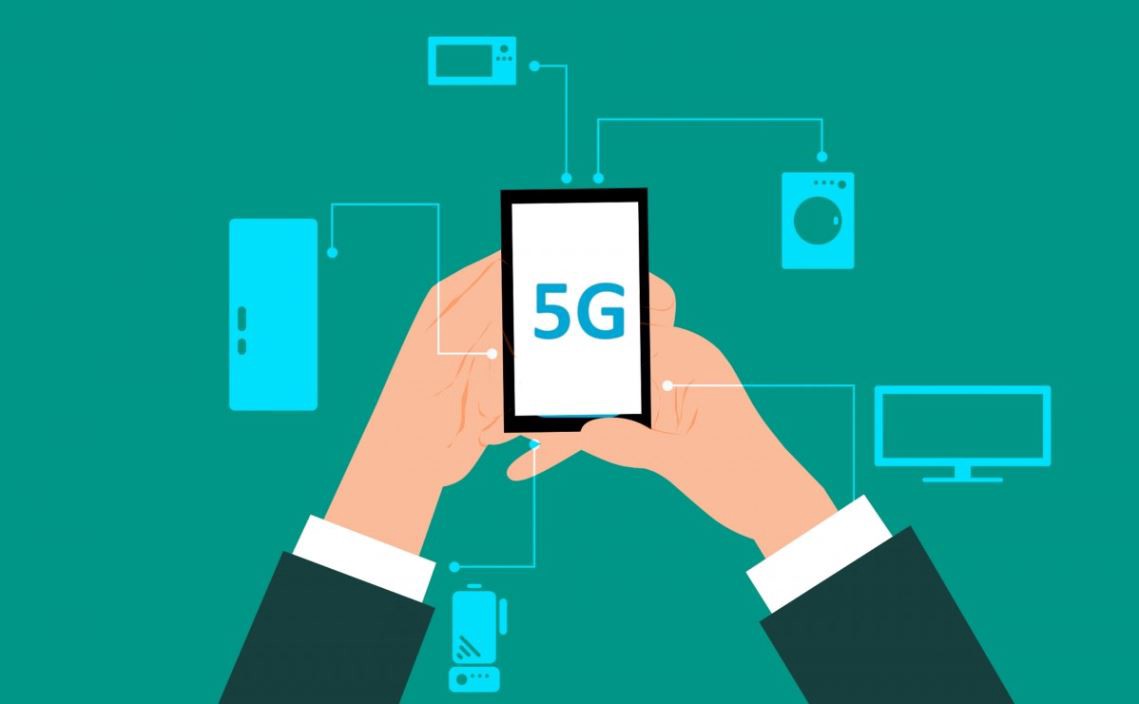导读
这周的「Weekly Spot」,你可以看到如下精彩推荐:
- 任正非都在给 5G 降温,我们到底该如何看待 5G ?
- 《六十分》节目里的李开复(大师);
- 高通的汽车策略;
- 荐书:隐藏在硅谷巨头背后的秘密;
- 「决策科学」能不能让人的决策更科学?
故事和观点
冷眼看 5G
本周,华为宣布了 5G 的新进展。其官方的新闻稿提出了三个重大进展:
- 发布全球首个 5G 基站核心芯片:天罡。
- 截止到 2019 年 1 月,华为已经在全球获得30个5G商用合同,25,000多个5G基站已发往世界各地;
- 发布 5G 多模终端芯片「巴龙 5000」和 5G 商用终端(GPE)。
与此同时,华为消费者业务 CEO 余承东还表示,华为首款 5G 手机也将在下月底的 MWC 上发布。
在 2019 CES 之后,5G 已成为全球性的科技话题,此时华为 5G 的产品布局也得到了海内外媒体的广泛报道。不过,围绕 5G 的讨论,除了技术上的术语解读之外,我也特别留意到任正非上周接受国内媒体采访时的一番表态:
……5G实际上被夸大了它的作用,也被更多人夸大了华为公司的成就。因为我们跑得太快了,我们的年轻人按捺不住自己的兴奋,一直讲啊讲,就把事情夸大了。实际上现在人类社会对5G还没有这么迫切的需要。人们现在的需要就是宽带,而5G的主要内容不是宽带。5G有非常非常多的内涵,这些内涵的发生还需要更多需求的到来,还需要漫长的时期。不要把5G想象成海浪一样,浪潮来了,财富来了,赶快捞,捞不到就错过了。5G的发展一定是缓慢的。日本和韩国还是4G,日本、韩国把4G运用到非常好,就足够满足使用。我们的4G没有用好,打开我的手机只有20—30兆,实际上我们提供的4G是可以到300—400兆,足够看8K电视。但是我们的网络,白天打开就只有二三十兆,只能看4K,没法看8K电视。为什么?网络结构不好。网络结构不好是啥?还是没有数学家在研究运营商的网络结构。所以网络结构性的问题没有解决,5G用上来和4G差不多。就好比我嘴巴很大,但是喉咙很小,我吃一大块肉还是一口吞不进去。因此,不是5G的基站是万能的,大家别那么着急。5G接下来估计还要进入毫米波,毫米波就是只要你多加一倍的钱,带宽可以加一百倍,就是一秒钟你可以下载几十部高清视频,这个我们已经在实验室里面都能完全做出来。5G现在暂时还没有充分发挥出用处,太快了。这次中央台用来在深圳(5G)直播春节联欢晚会,也只是个演示性作用,这种演示还不足以变成大规模的商业行为。
在当下这样热度里,任正非的这番对 5G 降温的表态并不会得到太多关注。而最近另一篇试图给 5G 降温的文章也展现了当下少有的冷静,a16z 合伙人 Ben Evans 表示,5G 并不是一个革命。
Evans 曾担任过电信分析师,但他这篇文章是站在硅谷以及互联网的角度,试图梳理出 5G 时代的机遇和挑战,并将当下媒体常常提及的所谓「5G 时代可以爆发的产业」进行了一番剖析,写得的非常精彩。比如他对于 5G 时代的 VR:
I think of VR as fundamentally an indoor product – you will not use it walking down the street or pop it open for 20 seconds while you’re waiting for the bus. That means that the connectivity is whatever your home broadband is – DSL, fiber, cable or, perhaps, 5G, plus however you connect to that (i.e. WiFi, mostly). 5G here means two different possibilities. It might mean fixed 5G (with very limited coverage) at up to a gigabit/sec to an antenna outside your home and then WiFi to the headset, or else it means a cellular, ‘mobile’ modem in your device, in which case you will get speeds much closer to today’s 4G LTE (again, 20 GHz signals do not go through walls). You’ll also get 5G latency, which is better than 4G. It 5G better than the existing connection? Will you notice? Is that what VR is waiting for? For how many applications?
Evans 特别提到了 5G 的网络切片属性。简而言之,运营商可以将 5G 流量进行更精细的切分和运营,可以实现通过控制流量「管道」粗细来运营不同的流量。Evans 写道:
Hence, you could theoretically customise any mix of data speed, coverage, quality, latency, and reliability, or even more narrow things like power consumption, and there will probably be a layer of resellers that emerges to aggregate and implement these kinds of services on behalf of MNOs. This seems interesting – it also seems likely to be an enterprise and vertical application story, not a consumer story.
我强烈建议各位朋友阅读这篇分析。
李开复谈 AI
本周,我看完了李开复接受美国 CBS 王牌节目《60 分》的采访,这期讨论的主题是「人工智能」,从脸部识别到情绪识别,从技术发展到社会经济影响再到政府管理等多个方面。
在谈到中国人工智能的优势时,李开复依然坚持这样的观点:
….Silicon Valley has been the single epicenter of the world technology innovation when it comes to computers, internet, mobile and AI. But in the recent five years, we are seeing that Chinese AI is getting to be almost as good as Silicon Valley AI. And I think Silicon Valley is not quite aware of it yet.
China’s advantage is in the amount of data it collects. The more data, the better the AI. Just like the more you know, the smarter you are. China has four times more people than the United States who are doing nearly everything online.
但事实上,所谓数据量越大、AI 越好的说法是极其片面的,我曾在本月的一期会员通讯里讨论过这个问题:
……如上文所言,数据是人工智能里的「燃料」,尤其在已标注的数据。然而,AI 的数据与发电时的燃料所不同的一点:尽管数据越多越好,但当数据量达到某个阈值之后,其 AI 模型的精准度并不会继续提升。也就是说,AI 的数据无法成为一种规模经济,依靠更多数据来降低整个 AI 成本,几乎是不可能的事情。
另外值得一提的是,数据不会成为 AI 巨头们竞争的第一要务。原因也不难理解,即便是中美两大数据量最大的公司——阿里巴巴与 Google——其所拥有的数据还是自身业务数据,阿里的电商数据可以直接应用到制造业的 AI 模型训练吗?显然不能,同理,Google 的搜索数据,也无法帮助其 AI 模型应对零售业的需求。
从这个角度去看,AI 数据成本,既无法通过数据量扩大形成规模经济而降低,也不能依靠 AI 巨头们自身的数据优势。
我相信李开复不可能不清楚这一点,但他作为一个投资人,尤其是游走在中美两国 AI 领域的投资者,他需要一套中美两国都可以接受的话语体系,能够集中体现这套话语体系的,还有他在 2018 年出版的《AI·未来》,该书甚至成为《经济学人》年度推荐图书。
回到李开复的专访,节目主持人 Scott Pelley 接连抛出了几个「敏感问题」,涉及 AI 与中国政府,李开复的应对可称之为「教科书般」的回答:
Scott Pelley: President Xi has called technology the sharp weapon of the modern state. What does he mean by that?
Kai-Fu Lee: I am not an expert in interpreting his thoughts. I don’t know.
Scott Pelley: There are those, particularly people in the west who worry about this AI technology as being something that governments will use to control their people and to crush dissent.
Kai-Fu Lee: As a venture capitalist, we don’t invest in this area, and we’re not studying deeply this particular problem.
Scott Pelley: But governments do.
Kai-Fu Lee: It’s certainly possible for governments to use the technologies, just like companies.
节目的画外音也意味深长:
With a pliant public, the leader of the Communist Party has made a national priority of achieving AI dominance in ten years. This is where Kai-Fu Lee becomes uncharacteristically shy. Even though he’s a former Apple, Microsoft and Google executive, he knows who’s boss in China.
你可以点击这里查看这期节目。
本周还有几个几篇值得关注的文章。
高通的汽车策略。 CES 期间,高通展现了其在汽车领域的布局,这篇文章提供了一个全视角,详细介绍了高通的汽车策略,推荐一读。
BAT 三巨头的 AI 江湖。 MIT 科技评论通过三幅图展现了 BAT 三巨头如何影响中国 AI 江湖,下面两幅图分别是 BAT 投资的 AI 公司数量以及所涉及的不同领域。


全球名校计算机公开课资源。最后分享一个来自 Github 的资源,汇集了 MIT、斯坦福以及普林斯顿大学的计算机公开课。
图书和电影
本周推荐一本我刚读完的书The Four,如下面的图书封面图所示,这是一个讨论美国科技行业四巨头的图书,其副标题就是「The Hidden DNA of Amazon, Apple, Facebook, and Google」。

作者认为,当下这些科技公司受到媒体的广泛关注,但在这些公司巧妙的公关与媒体的共同作用下,他们成为「人类未来」的代名词,而这本书的使命就是要揭开科技巨头隐藏的秘密。
作者在前言部分这样写道:
Imagine: a retailer that refuses to pay sales tax, treats its employees poorly, destroys hundreds of thousands of jobs, and yet is celebrated as a paragon of business innovation.
A computer company that withholds information about a domestic act of terrorism from federal investigators, with the support of a fan following that views the firm similar to a religion.
A social media firm that analyzes thousands of images of your children, activates your phone as a listening device, and sells this information to Fortune 500 companies.
An ad platform that commands, in some markets, a 90 percent share of the most lucrative sector in media, yet avoids anticompetitive regulation through aggressive litigation and lobbyists.
作者将每一家公司作为一个单独的章节进行分析,比如他这样讨论苹果的产品策略:
Steve Jobs instinctively understood this. Attendees at the 1977 Western Computer Conference in San Francisco registered the difference the instant they walked into Brooks Hall: while all other new personal computer companies were offering stripped-out motherboards or ugly metal boxes, Jobs and Woz sat at their table behind the tan injected-plastic Apple II computers that would define the elegant Apple look. The Apple computers were beautiful; they were elegant. Most of all, in a world of hackers and gearheads, Apple’s products bespoke luxury.
Luxury is not an externality; it’s in our genes. It combines our instinctive need to transcend the human condition and feel closer to divine perfection, with our desire to be more attractive to potential mates. For millennia, we’ve knelt in churches, mosques, and temples, looked around and thought, “There is no way human hands could have created Reims/Hagia Sophia/Pantheon/Karnak. No way mere humans could have created this alchemy of sound, art, and architecture without divine inspiration. Listen to how transcendent the music is. That statue, those frescoes, these marble walls. I’m taken out of the ordinary world. This must be where God lives.
我个人比较喜欢其中对 Google 的讨论。作者指出,Google 利用搜索算法,营造出了一个知识渊博甚至未卜先知的产品形象:
Google answers every question. Our pagan ancestors lived mostly with mysteries. God heard your prayers but didn’t answer many of them. If God did speak to you, it meant you were hearing voices, a red flag in any psychological assessment. Most religious people feel watched over, but still don’t (always) know what to do. Unlike our ancestors, we are able to find safety in facts. Our questions are answered immediately, our rest assured. How to detect carbon monoxide? Here are five ways. Google even highlights the top answer—here’s what you need to know, in big type, in case you’re freaking out right now.”
这是一个更强大的智能体,也是一个科学世界里的「新宗教」。
封面秀
《经济学人》

这期杂志的封面比较简单,所谓「Slowbalisation」也是对当下全球经济集体放缓的精准描述,杂志还配发了一篇社论和一篇 Briefing,同时还有两篇分析中国与欧洲地区经济发展趋势的文章。《彭博商业周刊》

这期杂志的封面文章是牙买加的股票市场。里面还有一篇关于中国经济衰退的文章,可以搭配这周的《经济学人》一起读。- 《纽约客》

这期杂志的封面主题是「big city」,但我更看到的是大城市里渺小的人,摩天大楼、汽车与飘落的雪花一起映射出了人的孤独和渺小。这期杂志里有一篇讨论「决策科学」的长文,梳理了人类从不同领域破解「如何科学做决定」的难题,非常有趣,推荐一读。

